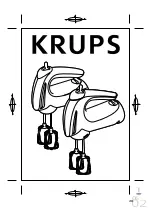
10
ENG
ITA
34. BAL (controllo bilanciamento)
Regola la quantità del segnale da inviare alle uscite sinistra o
destra se il canale è usato in MONO, oppure riduce la quantità
di segnale destro e sinistro se il canale è usato in STEREO.
35. MUTE (tasto canale spento)
Quando si preme il tasto MUTE il segnale scompare dalle
seguenti uscite: MAIN MIX, GROUPS 1-2, AUX 1, AUX 2, AUX
3/FX.
NOTA: il segnale di ingresso del canale non è
completamente silenziato da questo tasto e può essere
ancora ascoltato attraverso le uscite PHONES e C.ROOM
azionando il tasto SOLO in modalità PFL (vedi SOLO
MODE).
36. MUTE LED (segnalazione canale spento)
Questo LED segnala che il tasto MUTE è premuto.
37. MIX switch
Attivando questo interruttore si assegna il segnale del canale
al bus MAIN MIX regolato dal fader MAIN MIX. Solitamente,
l'interruttore MIX è attivato su tutti i canali eccetto quelli
assegnati separatamente al bus GROUP 1-2.
38. 1-2 switch
Attivando questo interruttore si assegna il segnale del
canale al bus GROUP 1-2 regolato dai fader GROUP 1-2.
Si possono usare i GROUP 1-2 come uscite separate o,
attivando il tasto GROUP 1-2 TO MIX, per creare un submix per
un gruppo di canali (per esempio tutti i canali della batteria): in
questo caso i segnali assegnati al GROUP 1-2 saranno controllati
insieme e indipendentemente dal resto del mix.
39. PEAK (rilevatore di picco e SOLO attivo)
Questo LED ha due funzioni:
Se il led PEAK è acceso sempre signifi ca che è stato attivato
il tasto SOLO del canale.
Se il led PEAK lampeggia signifi ca che il segnale di ingresso
è prossimo alla distorsione.
IMPORTANTE: se il led PEAK lampeggia ridurre il livello del
segnale di ingresso utilizzando il controllo di guadagno
(GAIN).
40. SOLO (tasto attivazione preascolto)
Questo tasto rende possibile il preascolto dei segnali dei
canali attraverso le cuffi e e l'uscita C.ROOM. Esso ha le
stesse modalità operative descritte prima per il canale
mono.
41. FADER LEVEL (controllo di livello del
canale)
Regola il livello del segnale del canale e lo invia alle uscite
MAIN MIX (se il tasto MIX è premuto) e GROUP 1-2 (se il
tasto 1-2 è premuto).
34. BAL control
It adjusts the amount of channel signal sent to the left and
the right outputs if the channel is used as MONO, or it
fades the LEFT or RIGHT signal amount if the channel is
used as STEREO.
35. MUTE switch
When you engage a channel’s mute switch, its signal
disappears from these outputs: MAIN MIX, GROUPS 1-2,
AUX 1, AUX 2, AUX 3/FX.
NOTE: the input channel signal is not completely
muted by this switch, so you can listen to it thru
headphones and C.ROOM outputs acting on the SOLO
button in PFL mode only (see SOLO MODE).
36. MUTE LED
This LED indicates the MUTE switch is engaged.
37. MIX switch
Engaging this switch you assign the channel signal to
the MAIN MIX bus regulated by the MAIN MIX faders.
Typically, the MIX switch will be engaged on all channels
except those assigned separately to GROUP 1-2.
38. 1-2 switch
Engaging this switch you assign the channel signal to
the GROUP 1-2 bus regulated by the GROUP 1-2 faders.
You can use the GROUP 1-2 jacks as separate outputs
or, engaging the switch GROUP 1-2 TO MIX, to create a
submix for a set of channels (all the drums channels,
for instance): in this case you can control the assigned
GROUP 1-2 signals together and independently from the
rest of the mix.
39. PEAK detector and SOLO active
This LED has two function:
If the PEAK LED lights permanently this means that you
have activated the SOLO switch of this channel.
If the PEAK LED fl ashes this means that the input signal is
near to the CLIPPING point.
IMPORTANT: if the LED PEAK fl ashes reduce the level of
the input signal using the GAIN control.
40. SOLO switch
This switch allows you to hear signals through your
headphones or control room outputs. It has the same
operative functions described before for the mono
channel.
41. FADER LEVEL control
It adjusts the level of the channel signal and sends it to the
MAIN MIX (if the MIX button is pressed) and to GROUP 1-2
(if the 1-2 button is pressed).
STEREO CHANNEL STRIP
STRIP CANALE STEREO
Summary of Contents for M-1000
Page 34: ...34 ENG ITA NOTE NOTE ...











































